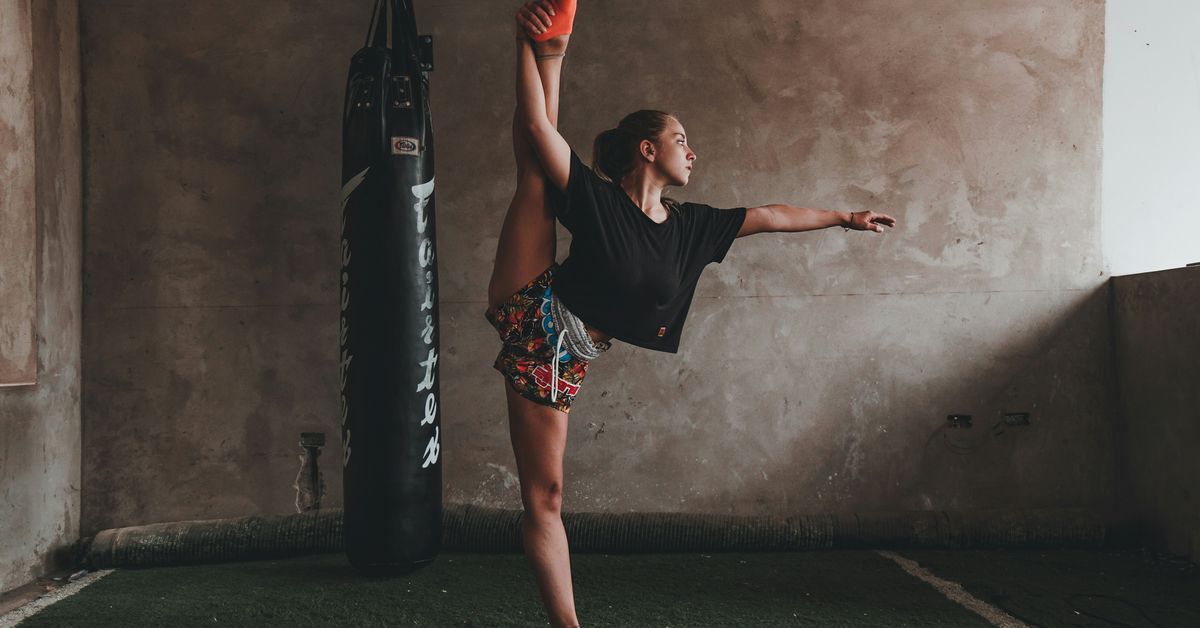Why Ignoring Mental Fitness Could Be Sabotaging Your Athletic Performance
In the world of sports, there’s a widely held belief that physical prowess reigns supreme. Athletes often focus on building strength, speed, and agility, training relentlessly to push their bodies to the limits. But what if I told you that many athletes are ignoring a crucial component of their performance—their mental fitness? It’s almost like trying to run a car on empty; no matter how powerful the engine, without fuel, it’s going nowhere fast.
As I sit here reflecting on the countless interviews I’ve conducted over the years, it strikes me that many elite athletes are surprisingly candid about their struggles with mental health. They’ve spoken openly about anxiety, depression, and the pressure to perform, and how these factors can derail even the most prepared competitors. Yet, despite this awareness, mental fitness often takes a backseat to physical conditioning in training regimens. So, let’s dive deep into this complex yet fascinating issue and explore why neglecting mental fitness could be the very thing sabotaging your athletic performance.
The Mind-Body Connection
It’s no secret that the mind and body are intricately connected. Ask any seasoned athlete, and they’ll likely tell you that competition isn’t just about physical skill; it’s also about mental resilience. In fact, many studies have shown that a strong mental state can enhance physical performance. According to Dr. Jim Afremow, a sports psychologist and author of “The Champion’s Mind,” mental training can improve focus, boost confidence, and help athletes overcome challenges. It’s like having a superpower, enabling athletes to push through pain or fatigue when it matters most.
For instance, consider the case of Olympic swimmer Michael Phelps. He has openly discussed his battles with anxiety and depression, yet he has also credited his mental training as a significant factor in his success. By utilizing visualization techniques and mindfulness practices, Phelps was able to enhance his focus and maintain his composure during intense competition. Can you imagine the pressure of competing on such a grand stage, with millions watching? It’s enough to make anyone’s palms sweat! Yet, Phelps navigated these waters with grace, all thanks to a well-honed mental fitness routine.
The Role of Mental Fitness in Athletic Training
So, what does mental fitness entail? At its core, it’s about developing the right mindset to enhance performance and cope with the inevitable challenges that come with athletics. Here are several key components:
- Focus: The ability to concentrate on the task at hand, blocking out distractions.
- Resilience: Bouncing back from setbacks, whether they’re physical injuries or disappointing performances.
- Confidence: Believing in oneself and one’s abilities, even in the face of adversity.
- Visualization: Mentally rehearsing performance to enhance execution.
- Mindfulness: Staying present and aware, rather than getting caught up in worries about the future or regrets from the past.
Many athletes might roll their eyes at the thought of spending time on these mental strategies. “I just need to hit the gym more,” they might say with a dismissive wave. But ignoring mental fitness is like ignoring a flat tire: you can keep driving, but it won’t get you far. In fact, athletes who neglect their mental development often find themselves struggling with performance anxiety, burnout, and even injuries.
Performance Anxiety: The Silent Saboteur
Performance anxiety is a common issue for athletes at all levels—from amateurs to professionals. I remember speaking with a young golfer who had all the talent in the world but found himself paralyzed by fear every time he stepped onto the course. “I just kept thinking about what everyone would say if I messed up,” he confessed, his voice tinged with frustration. This mental block not only affected his game but also his enjoyment of the sport. If you can’t enjoy what you’re doing, then what’s the point?
Research indicates that performance anxiety can lead to a range of physical symptoms, including increased heart rate, muscle tension, and even gastrointestinal issues. When the mind is in overdrive, the body reacts accordingly. In the heat of competition, this anxiety can quickly spiral out of control, leading to poor decision-making and execution. Athletes might find themselves second-guessing their instincts or hesitating during critical moments.
The Importance of Mental Resilience
Mental resilience is particularly vital in sports, where setbacks are part of the game. Imagine being a runner who trains for months, only to suffer an injury just before a major race. It’s a gut-wrenching experience that can throw athletes into a tailspin. But it’s how they respond to adversity that often defines their careers.
Take the story of Serena Williams. After giving birth to her daughter, she faced numerous health complications, including a pulmonary embolism. Many wondered if we had seen the last of her on the tennis court. Yet, through sheer determination and a focused mindset, Williams made a remarkable comeback. She didn’t just return; she became a fierce competitor once again. It’s a testament to the power of mental resilience—an ability to adapt, to fight back, and to rise from the ashes of adversity.
Building a Mental Fitness Routine
If you’re nodding your head and thinking, “Okay, I see the importance,” you might be wondering how to incorporate mental fitness into your training. Fear not! Here are a few strategies that can help:
1. Visualization Techniques
Visualization isn’t just for athletes who want to ace their performance; it’s a tool anyone can use. Picture yourself executing a perfect swing, a flawless jump, or a winning sprint. The more vivid the imagery, the better. Studies have shown that mental practice can enhance physical performance, as your brain activates similar pathways to those used in actual performance.
2. Mindfulness and Meditation
Meditation might sound like something best left to yoga enthusiasts, but trust me, it has tangible benefits for athletes. Mindfulness practices can help you stay grounded and manage anxiety. Even just a few minutes of focused breathing can make a world of difference before a big game.
3. Positive Self-Talk
The words we say to ourselves matter—more than we often realize. Instead of dwelling on negative thoughts, try to cultivate a positive inner dialogue. Replace “I can’t do this” with “I’m capable of more than I think.” It might feel a bit cheesy at first, but over time, you’ll start to believe it.
4. Set Realistic Goals
Setting SMART (Specific, Measurable, Achievable, Relevant, Time-bound) goals can give you a clear focus and help you track your progress. It’s essential to celebrate small victories along the way, reminding yourself that every step counts.
5. Seek Professional Help
There’s no shame in asking for help. Sports psychologists are trained to help athletes navigate their mental challenges. If you find yourself struggling with anxiety or other mental barriers, reaching out for support can be a game-changer.
The Growing Acceptance of Mental Fitness in Sports
Fortunately, the tide is turning in the world of athletics. Many professional organizations are beginning to acknowledge the importance of mental fitness. The NBA, for instance, has launched initiatives to promote mental health awareness among players. It’s a significant step forward, especially in a culture that has long valued physical toughness above all else.
Players like Kevin Love and DeMar DeRozan have become vocal advocates for mental health, sharing their personal struggles and encouraging others to prioritize their mental well-being. It’s refreshing to see athletes using their platforms to spark conversations about issues that, for too long, have been shrouded in stigma.
Conclusion: The Path Forward
In the end, ignoring mental fitness could very well be the Achilles’ heel of athletic performance. Athletes train their bodies relentlessly, but it’s equally crucial to train the mind. The stakes are high, and the competition is fierce. Just like a finely tuned machine, an athlete’s mind needs regular maintenance to perform optimally.
As we move forward, let’s continue to break down the barriers and stereotypes surrounding mental fitness in sports. More awareness means more athletes embracing the notion that taking care of their mental health is just as important as physical training. Whether you’re a professional athlete or a weekend warrior, remember: your mind is a powerful tool. Nurture it, and you’ll unlock your true potential.
So, the next time you hit the gym or lace up your running shoes, take a moment to check in with yourself mentally. After all, the mind is the ultimate game-changer. And who knows? You might just find that you’re capable of more than you ever imagined.




